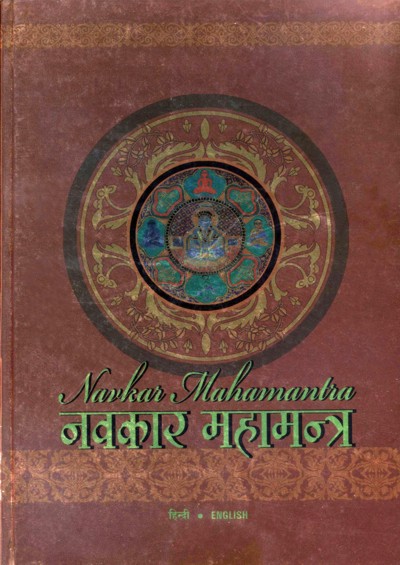Page 42+43
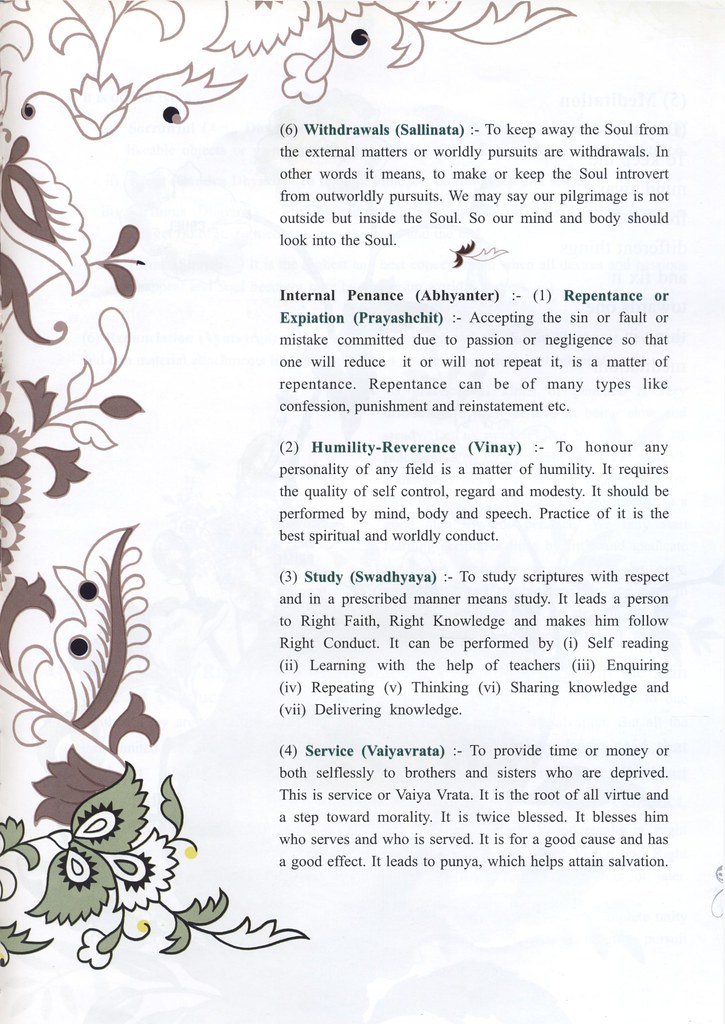
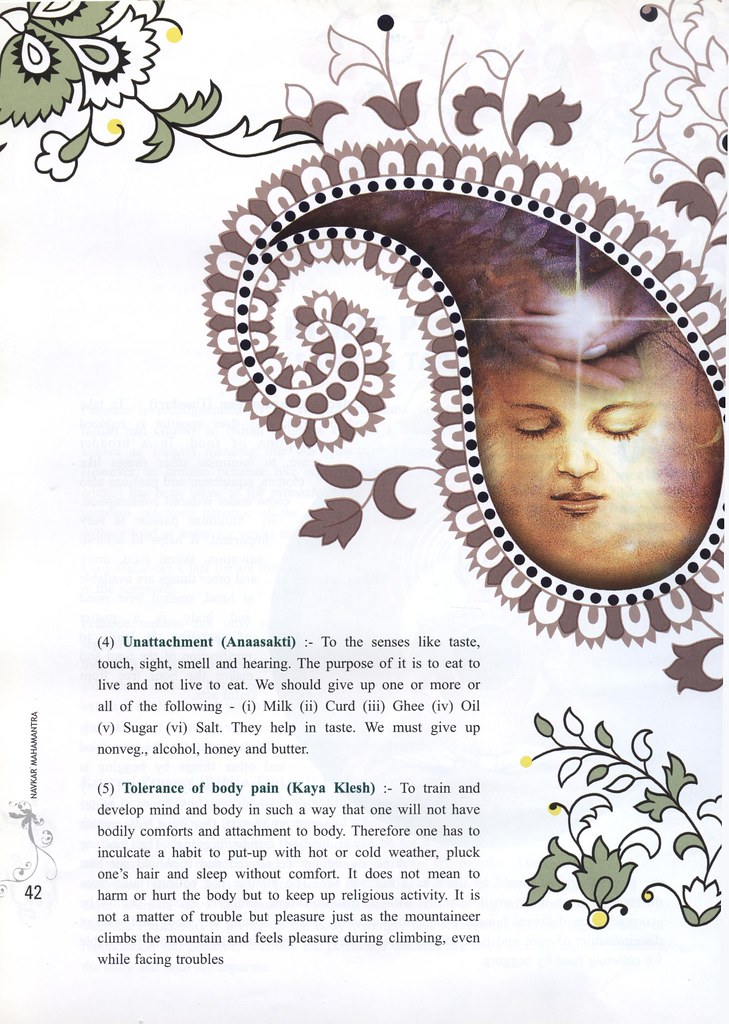
Text:
Internal Penance (Abhyanter):
1) Repentance or Expiation (Prayashchit):Right Vision, Right Knowledge, and Right Conduct make up the Jain Code of Conduct.2) Humility-Reverence (Vinay):Accepting the sin or fault or mistake committed due to passion or negligence so that one will reduce it or will not repeat it, is a matter of repentance. Repentance can be of many types like confession, punishment and reinstatement etc.
3) Study (Swadhyaya):To honour any personality of any field is a matter of humility. It requires the quality of self control, regard and modesty. It should be performed by mind, body and speech. Practice of it is the best spiritual and worldly conduct.
4) Service (Vaiyavrata):To study scriptures with respect and in a prescribed manner means study. It leads a person to Right Faith, Right Knowledge and makes him follow Right Conduct. It can be performed by
- Self reading
- Learning with the help of teachers
- Enquiring
- Repeating
- Thinking
- Sharing knowledge
- Delivering knowledge
To provide time or money or both selflessly to brothers and sisters who are deprived. This is service or Vaiya Vrata. It is the root of all virtue and a step toward morality. It is twice blessed. It blesses him who serves and who is served. It is for a good cause and has a good effect. It leads to punya, which helps attain salvation.
(5) Meditation (Dhyan):
To keep the mind away from different things and fix it towards one thing is meditation.(6) Renunciation (Vyutsarga):
It is of four types:
To meditate when one is sad. This is caused by loss of likeable objects or gain of dislikeable objects and is known as sorrowful meditation.
To think of violence, untruth, theft and senses.
To think and act on the instruction of Jinas, to know about sin and get rid of it. To meditate upon the good and the bad.
It is the highest and best concentration when all desires and passions disappear and Soul becomes pure by giving-up worldly matters.It means giving-up material attachment like house, jewellery and non material attachments like passions. It is a penance towards non attachment.
To practice all kinds of penance is very difficult. We must believe in being slow and steady. Let us practise step by step. It is by practicing step by step that one learns to walk a thousand steps. Let us start to have one (or more) morsel(s) less than our appetite; it is a good step towards penance. We may start learning scriptures little by little and inculcate the habit gradually so it would be easy, comfortable and trouble free. As one rises to climb the staircase step by step, in the same way one can do in other forms of penance.
The relationship among the three jewels is complementary to one another. They are incomplete and ineffective alone for the purpose of salvation. But all the three united serve the purpose of realization of Soul. It has rightly been said that without Vision, Knowledge and Conduct are of no use. Without Knowledge, Vision and Conduct are blind and without Conduct, Knowledge and Vision are worthless. Steadfastly, Right Vision results in Right Knowledge and Right Conduct, similarly Right Knowledge brings Right Vision and Right Conduct and Right Conduct ensures Right Vision and Right Knowledge sooner or later.
The three jewels of Right Vision, Right Knowledge and Right Conduct show complete unity of approach between Jain metaphysics and Jain ethics. There is emphasis on religious pursuit at any age.
Page 44+45
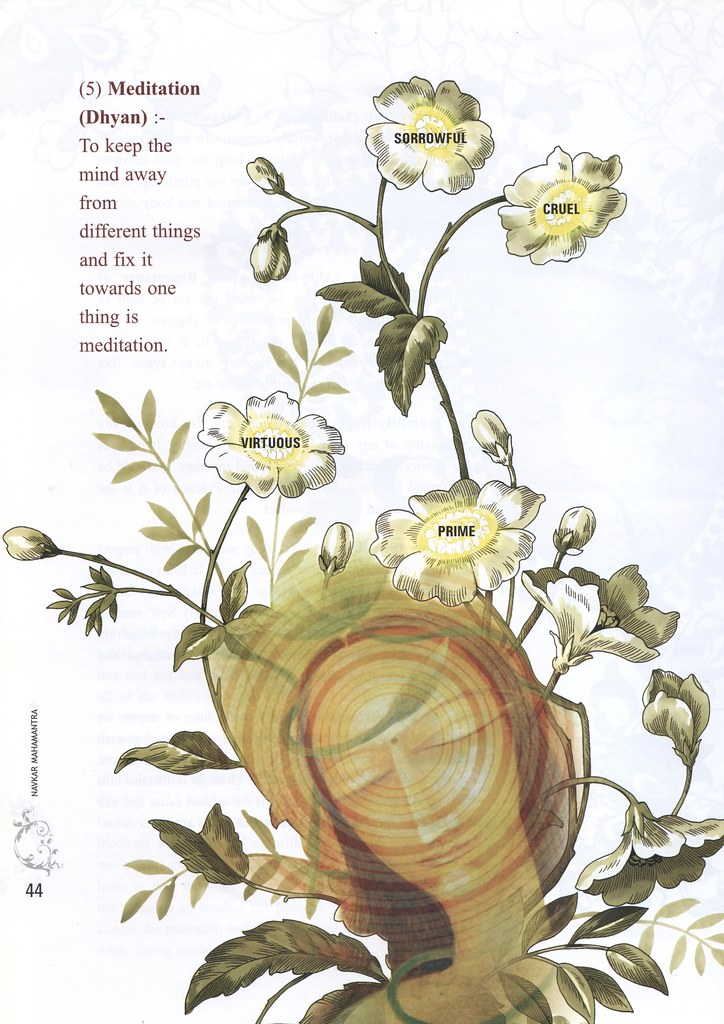
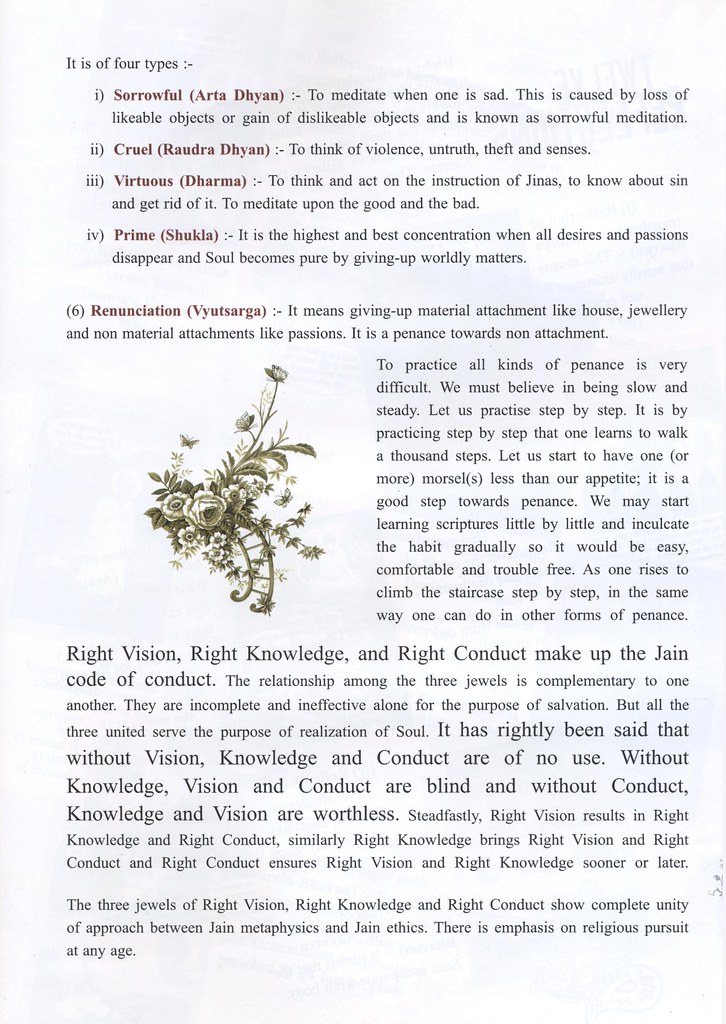
 Prakash Sancheti
Prakash Sancheti
